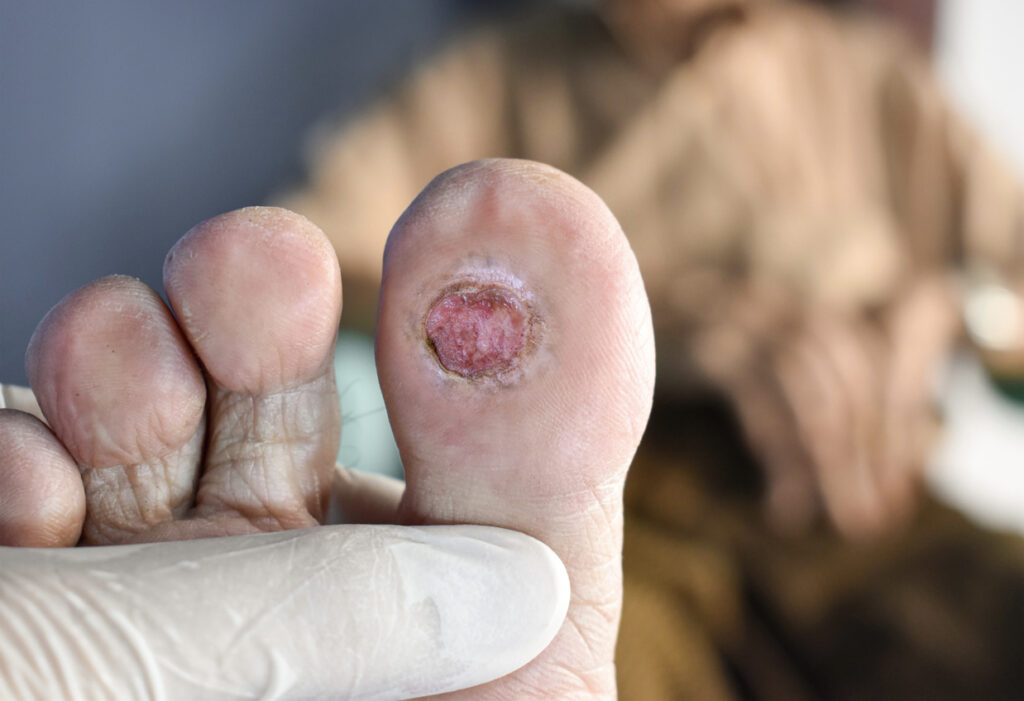Alcaligenes faecalis (A. faecalis) may facilitate healing of hard-to-treat wounds among people with diabetes, according to new research.
The researchers found that using A. faecalis to inoculate diabetic mice, which have wound healing defects, led to accelerated wound healing with no signs of infection. Next, they learned introducing A. faecalis to wounds caused keratinocytes to proliferate and migrate to close the wound more than the untreated cells. Additionally, skin samples taken from individuals who have diabetes were cultured with A. faecalis, and after 10 days, the samples with the bacterium had a statistically significant greater outgrowth of keratinocytes.
From there, the researchers saw mice diabetic wounds treated with A. faecalis turned up genes linked to the activation of leukocytes including T cells which are vital in the immune system’s defense. It also downregulated genes responsible for collagen breakdown, specifically enzymes called matrix metalloproteinases (MMPs). Importantly, there are too many MMPs in people with diabetes and have been shown to inhibit proper wound healing.
The study focused particularly on MMP-10, which is expressed by keratinocytes, and was lowered in wounds treated with A. faecalis.
“This research builds heavily on our previous research where we profiled the bacteria found in diabetic foot ulcers over time and studied how these bacteria influence healing outcomes,” says study author Elizabeth Grice, PhD, the Sandra J. Lazarus Professor in Dermatology and the Vice Chair of Basic Science Research in the Department of Dermatology at the Perelman School of Medicine of the University of Pennsylvania in Philadelphia, PA, in a news release. “We did not expect to find that a bacterium would be able to promote healing, but this surprising finding motivated further studies of A. faecalis.”
“MMPs are necessary enzymes that break down connections between cells to allow cells to move. But in patients with diabetes, MMPs are known to exist at much higher levels,” adds Ellen K. White, an MD-PhD student at Penn. “Our findings show that A. faecalis rebalances the MMP expression in wounds, which allows faster wound closure. In future studies we hope to learn more about how the bacteria communicates with skin cells, and also how A. faecalis interacts with other bacteria in the wound.”
This new research may help scientists develop more options for wound care.
“Bacterial-based wound therapies are an exciting new frontier,” says Grice. “There are many different ways to take advantage of our findings and future work on the wound microbiome. It may be possible to isolate the pro-healing molecules secreted by A. faecalis or target the pathways that are downstream of the bacteria’s effects. The better we understand the whole process, the more likely we can translate our findings to ultimately help patients with wound and skin repair problems.”
The findings are published in Science Advances.


